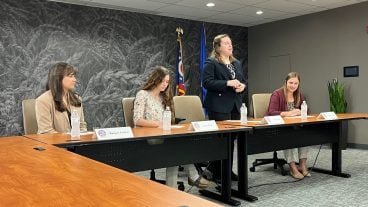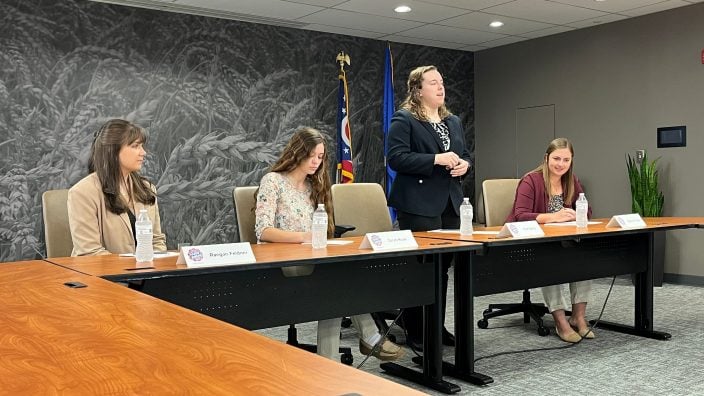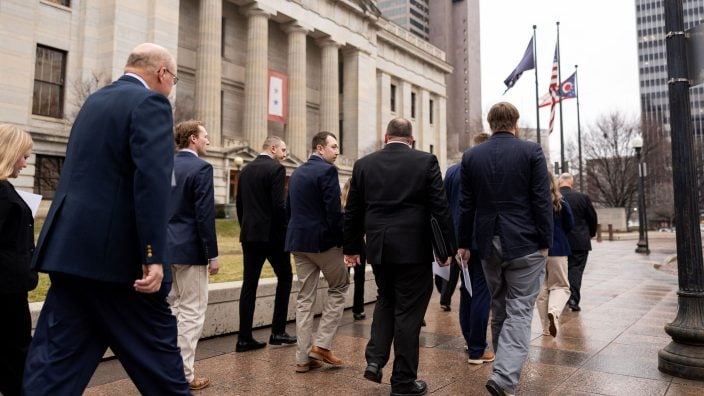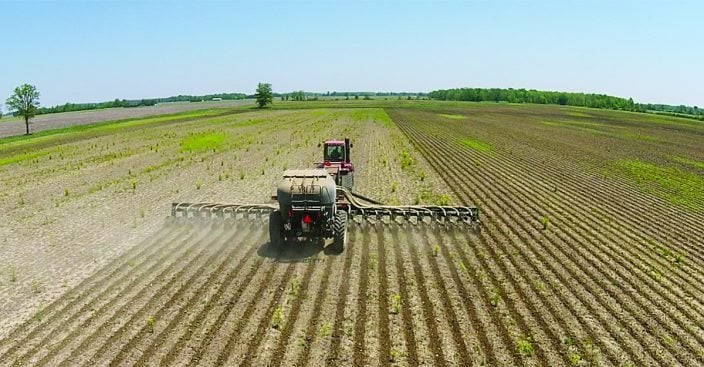Applications for Ohio Farm Bureau Health Plans now available
Members have three ways to apply: contacting a certified agent, calling 833-468-4280 or visiting ohiofarmbureauhealthplans.org.
Read MoreThe deadline has passed for those farmers who are required to complete fertilizer certification by Sept. 30.
With the passage of Senate Bill 150 in 2014, Ohio became the first state to require anybody who applies commercial fertilizer to more than 50 acres for agricultural purposes to be certified no later than the Sept. 30, 2017 deadline. Applying fertilizer without certification could result in fines and/or misdemeanor charges.
According to Tony Seegers, OFBF director of state policy, the director of the Ohio Department of Agriculture may issue an order to a person to pay a civil penalty for applying fertilizer and not being certified. Additionally, the person could face a misdemeanor charge, a third degree charge for a first offense, second degree for second offense and a first degree for subsequent offenses.
Fertilizer certification is required if fertilizer (other than manure) is applied to more than 50 acres of agricultural production grown primarily for sale. However, if a certified co-op or other certified custom applicator is hired to make applications, farmers do not personally need the certification.
“Farm Bureau supported this law because we know we share a responsibility to reduce nutrient loading,” Seegers said. “Senate Bill 150 is indicative of agriculture’s continued efforts to improve water quality.”
Best management practices are the basis of the agricultural fertilizer certification with a focus on fertilizer applications that have the appropriate rate, timing, placement and source. Classes for fertilizer certification have been offered since September 2014. Each region of the state continues to offer some three-hour certification classes for fertilizer application certification.
Once completed, certifications are good for three years. Those who obtained certifications three years ago will have to be recertified. Those one-hour classes begin in October. A written exam for re-certification will be available in November.
For information about classes, visit Ohio State University Extension’s Nutrient Education & Management website.


Members have three ways to apply: contacting a certified agent, calling 833-468-4280 or visiting ohiofarmbureauhealthplans.org.
Read More

Collegiate Farm Bureau serves as a connection to current industry professionals and equips the next generation with the essential tools and resources needed to excel in their careers.
Read More

Ohio Farm Bureau members met one-on-one with state legislators and staff to discuss policy priorities impacting Ohio’s farms and rural communities.
Read More

Legacy nutrient deductions enable new farmland owners to claim deductions on the nutrients within the soil on which healthy crops depend.
Read More

Farmers, agribusinesses and community members are encouraged to nominate their local fire departments for Nationwide’s Nominate Your Fire Department Contest through April 30.
Read More

Introduced by Sen. Paula Hicks-Hudson, SB 120 would establish the Urban Farmer Youth Initiative Pilot Program.
Read More

Gases, vapors, and fumes can all create risk. How can we measure and protect ourselves from them?
Read More

The Ohio Farm Bureau’s Young Agricultural Professionals State Committee has named its 2026 leadership and the individuals who will be serving on the state committee for 2026-2028.
Read More

The Ohio Farm Bureau Foundation has multiple scholarships available to Ohio students from rural, suburban and urban communities who are pursuing degrees with a connection to the agricultural industry.
Read More

With 100% bonus depreciation now permanent, farmers can deduct the full cost of a new agricultural building in the year it’s placed in service.
Read More